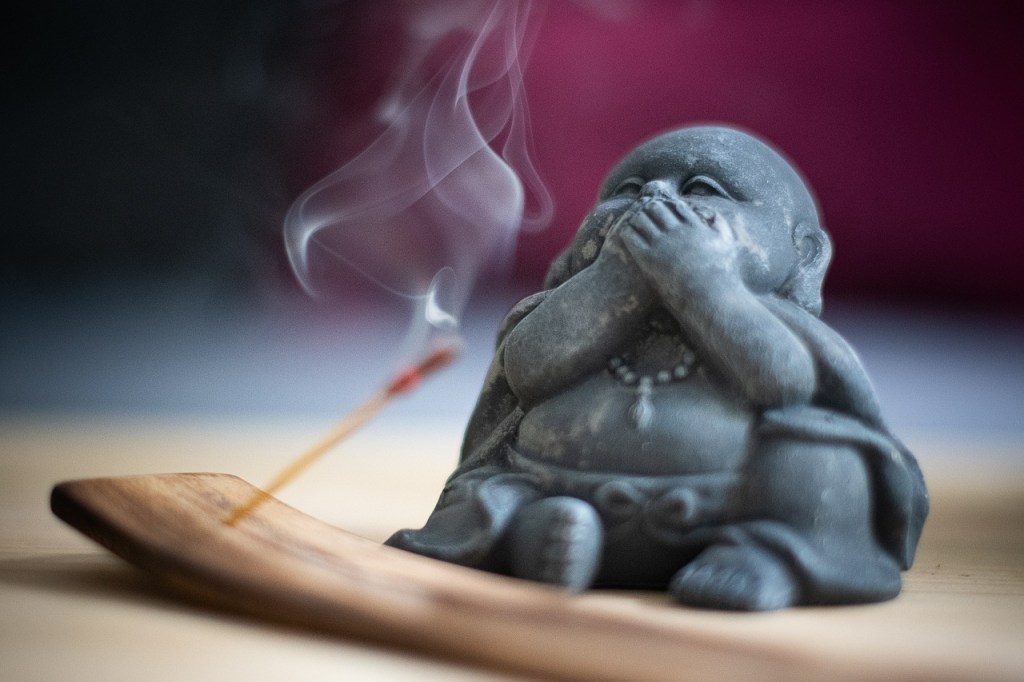
I’ve seen the term “spiritual bypassing” tossed around a lot lately. Although the term was first coined by psychotherapist John Welwood in the early 1980s, it’s gained public awareness due to a combination of the growing spirituality movement, and also social media quotes and memes. It’s definitely something I’ve experienced and anyone healing from trauma needs to be aware of it.
Spiritual bypassing is defined by Welwood as “a tendency to use spiritual ideas and practices to sidestep or avoid facing unresolved emotional issues, psychological wounds, and unfinished developmental tasks.” Often, people aren’t aware they are sidestepping or avoiding dealing with issues, they truly believe applying spiritual practices solely will provide complete healing. To say “Everything happens for a reason” or “Heaven needed another angel” might give momentary comfort, but it doesn’t deal with, or in any way heal, the kind of deep mental and emotional wounds we suffer in this human life.
As much as I write about including the soul in healing trauma, the key word is “include” which means “involve as a factor.” It doesn’t mean rely on solely! My faith and spiritual beliefs have certainly helped me heal trauma, but they are not enough on their own. I had deep family and relationship issues, traumatic events, and profound grief to deal with. These mental and emotional matters required skilled psychotherapy, and I’m forever grateful to the therapists I’ve worked with over the years. Without their guidance and insight, I would never have made the progress I have!
Soon (literally days) after I was assaulted, a so-called spiritual teacher led me on a guided visualization to a safe space, where she suggested I picture my attacker and offer forgiveness.
I can’t tell you the damage this did. I was young, so of course I put my trust in an older, wiser person. But this was not the time for me to move into forgiveness, delay my rage, and stuff down my hatred. I had been violated and did not feel safe in the world. If I felt rage, I thought “No, this happened for a reason. It will make me stronger.” If I felt unsafe, I thought “No, you need to trust that God will keep you safe.” (Btw, where was God when it happened?) If I felt hatred, I thought “No, I need to forgive.” I thought of myself as spiritual, therefore I had to respond spiritually.
Thankfully, I quickly moved into therapy where my very human feelings were validated. Not just validated, but exhumed, released, and poured out into that safe space. Not only that, but I learned about trauma, trauma responses, PTSD, and that everything I was feeling, or would feel, was a normal response to an abnormal situation. Good therapists teach us about ourselves and the human condition! My healing journey continued with therapy and my only prayer became, “Help me heal.” Later, years later, there was eventually forgiveness, but it was for my own sake, so I could move forward.
Spiritual bypassing can delay deep mental and emotional healing. Unless you work with a skilled therapist to look at your issues head on, spiritual platitudes will only sustain you for so long. According to Gail Andrews, LCSW (@mentallywellish), “Spiritual bypassing is an egoic denial that keeps the trauma pushed down and unattended. When this happens our souls ache and we may even scramble for more spiritual guidance, inspiration and direction. The cycle persists – and the work of the soul is actually denied.”
I don’t know about you, but I can be the queen of avoidance. And I will use spirituality to avoid dealing with issues that confront me. Typical avoidance tools are work, busyness, scrolling, gaming, cleaning, streaming, eating, caring for others – but it’s important to include spiritual bypassing in this list. Are you diving deep into a spiritual or religious practice, only to find yourself empty and hurting when you’re not actively worshipping or praying? This is a clue that you need therapy in conjunction with your practice. Something is remaining unhealed, and to attempt to heal the soul without healing the mind is like wrapping a broken finger without a splint. It will heal, but it could heal straighter and stronger with more effort put into the treatment.
In conjunction with this, there is evidence that spirituality itself can actually have a positive effect on your mental health. Lisa Miller, professor of psychotherapy at Columbia University has done research with brain imaging that recorded how spiritual thoughts effect the brain. The region of our brain that is associated with emotional and sensory processing actually calms when we recall a spiritual experience. What gurus and mystics have always known – quieting the mind, spiritually sitting, praying or meditating – protects our mental health.
I saw a meme recently complaining about people saying “My trauma made me stronger.” Some find this kind of thinking problematic, especially people with CPTSD, victims of childhood abuse. I understand what they mean. It can feel like spiritual bypassing. A better option would be “Healing trauma made me stronger.” It’s not like trauma was a choice. The choice lies in our healing – how we choose to heal, how soon, and how we navigate moving forward. My hope is that we continue to find the overlaps and helpful tools within therapy and spirituality. For me, working these two paths together was necessary in healing trauma – doing one without the other would have delayed my growth, both as a person and as a soul.
Do you have experience with this? What are your thoughts about this topic?

